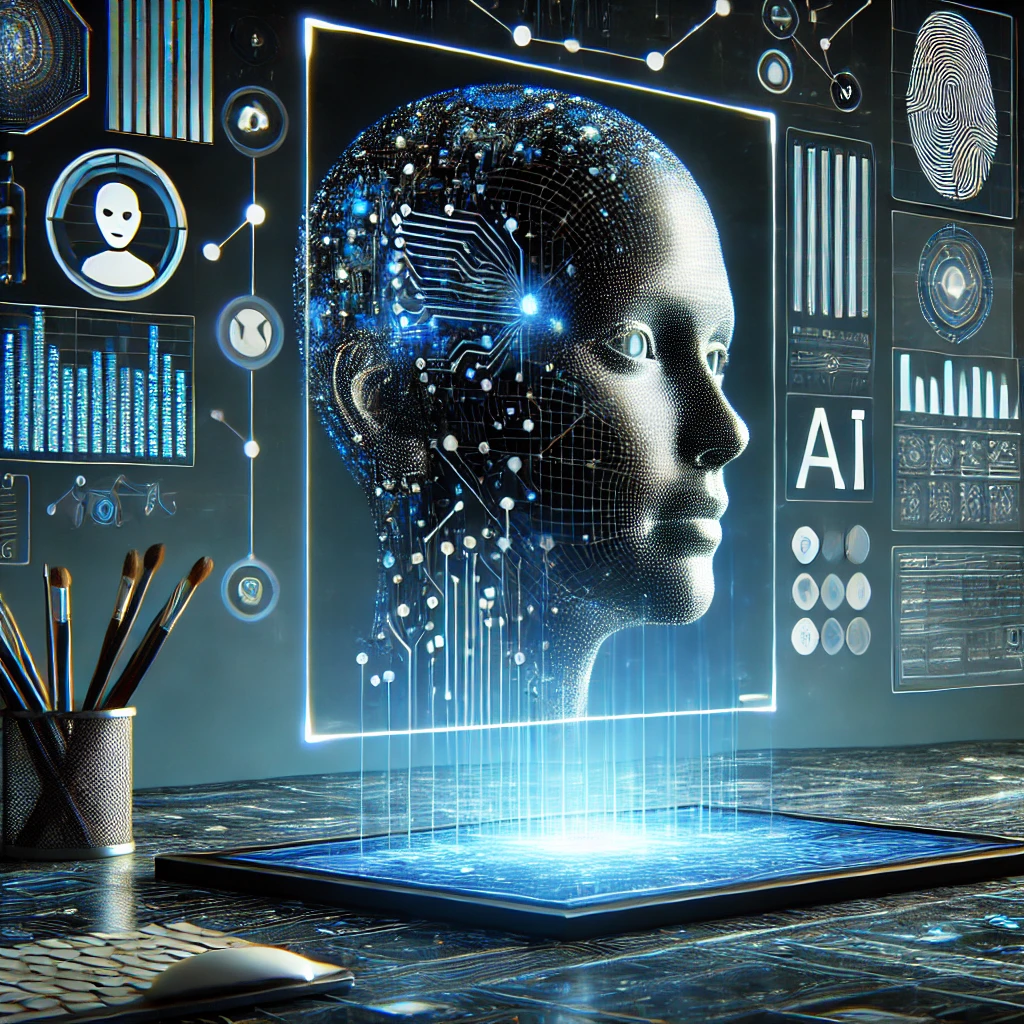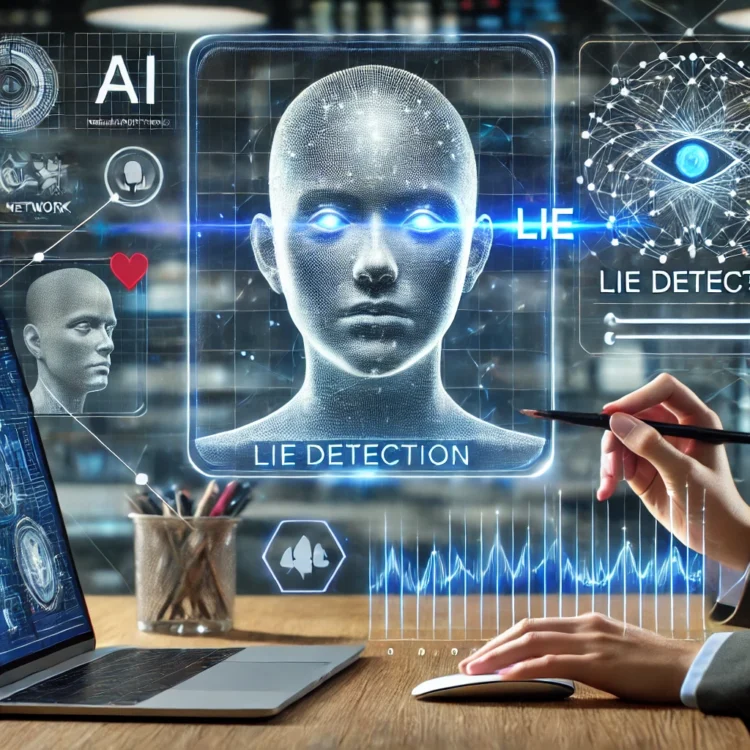August 8, 2024
In the quest to uncover truth, society has evolved from ancient practices like trial by ordeal to modern techniques such as polygraphs. However, the introduction of Artificial Intelligence (AI) lie detectors represents a groundbreaking shift in the landscape of deception detection. As technology becomes ever more intertwined with our daily lives, AI lie detectors are emerging as powerful tools capable of preventing fraud, enhancing security, and fostering trust in diverse fields, including law enforcement, corporate environments, and personal relationships.
AI lie detection systems utilize advanced technologies like machine learning, Natural Language Processing (NLP), facial recognition, and voice stress analysis to detect deception with unprecedented accuracy. But as these systems gain traction, critical questions arise: Can we truly rely on machines to discern truth from lies, and how do we balance this technology with human intuition? Exploring these questions is crucial as AI continues to shape the future of truth-telling.
What Are AI Lie Detectors?
AI lie detectors leverage cutting-edge technology to analyze multiple data points, identifying patterns of deception. These systems incorporate machine learning, NLP, facial recognition, and voice stress analysis to deliver comprehensive assessments. For example, researchers at the University of Maryland developed an AI model capable of detecting deceit in courtroom testimonies.
Projects using NLP to analyze speech and text inconsistencies are also on the rise. Facial recognition software, inspired by Dr. Paul Ekman’s work on micro-expressions, adds another layer of accuracy in detecting deception. Additionally, tools like Nemesysco’s Layered Voice Analysis (LVA) assess voice stress levels and are increasingly used by law enforcement agencies worldwide. By combining verbal and non-verbal signals, AI lie detectors offer a more holistic and accurate approach compared to traditional polygraphs.
The transition from polygraphs, which have often been criticized for their inaccuracy, to AI-based systems marks a significant evolution in lie detection. These AI-driven tools represent a more data-driven, scientific approach that is quickly gaining popularity in security, law enforcement, and beyond.
Applications of AI Lie Detectors
AI lie detectors are being adopted across various sectors. In law enforcement, these systems are used to evaluate suspect statements, and in the UK, police are utilizing AI to analyze body camera footage for signs of deception. Corporations like HireVue are using AI lie detectors to assess candidate honesty during interviews, streamlining the hiring process. Border security agencies in the EU employ AI to screen travelers, and online platforms like Facebook and X (formerly Twitter) use AI to detect fraudulent activities and misinformation.

The Science Behind AI Lie Detection
The effectiveness of AI lie detectors is rooted in their advanced algorithms and robust technology. Recent studies have shown that AI tools can outperform humans in lie detection. For instance, an AI tool trained using Google’s BERT language model achieved a 67% accuracy rate in distinguishing truth from lies. Although this rate is not perfect, continuous learning allows AI systems to adapt and improve over time.
Researchers are continually refining AI lie detectors by integrating more sophisticated machine learning techniques and expanding the datasets used for training. Advances in detecting micro-expressions and understanding contextual nuances in language are among the improvements being made. For example, MIT researchers have developed algorithms capable of identifying subtle vocal changes that may indicate stress or deception.
Benefits of AI Lie Detectors
AI lie detectors offer several advantages over traditional methods:
- Nuanced Analysis: AI systems analyze multiple data sources, using advanced algorithms to detect lies with a higher degree of accuracy.
- Widespread Application: AI lie detectors enhance security measures in various settings, such as US airports, where they improve passenger screening, and financial institutions like HSBC, where they monitor for fraudulent transactions.
- Efficiency in Hiring: In corporate environments, AI lie detectors streamline the recruitment process, verifying candidate statements, saving time, and ensuring integrity. Companies like Unilever rely on these tools for accurate and efficient assessments.
- Increased Trust: In high-stakes communications, legal proceedings, and sensitive negotiations, AI lie detectors provide additional assurance, enhancing the reliability of witness statements and fostering trust.
User Adoption and Skepticism
Despite their potential, AI lie detectors face mixed reactions from users. Studies show that only one-third of participants opted to use AI lie detection tools, reflecting widespread skepticism. During trials at EU border controls, many travelers expressed discomfort, fearing false accusations. These concerns underscore the ongoing challenge of balancing technological advancements with human concerns about privacy, accuracy, and the role of AI in decision-making.
Interestingly, those who choose to use AI lie detectors tend to place significant trust in the technology’s predictions. This highlights the complex relationship between humans and AI, where trust can be both a barrier to and a driver of adoption. A Stanford University study on multimodal machine learning for deception detection reported high accuracy rates, but methodological concerns remain. While traditional polygraphs are unreliable, AI lie detectors show promise, though ethical considerations must be addressed.
Ethical and Social Implications
AI lie detectors raise significant ethical and social concerns, particularly regarding privacy and consent. The extensive data collection required by these systems prompts fears of misuse and the moral implications of constant surveillance, as evidenced by issues in Amazon’s warehouse operations.
The risk of false positives is another critical concern. Incorrect accusations, such as the case of a UK citizen wrongly identified as a shoplifter due to facial recognition errors, can have severe consequences.
While AI lie detectors offer enhanced accuracy, they should be seen as complementary to human judgment rather than a replacement. In criminal investigations, AI can support detectives’ decisions, but combining AI insights with human intuition ensures the most reliable outcomes. The growing use of AI lie detectors necessitates clear regulations, as existing laws often lag behind technological advancements.
Conclusion
AI lie detectors represent a significant advancement in deception detection, offering improved accuracy and diverse applications in security, hiring, and fact-checking. However, their adoption is tempered by ethical concerns, privacy issues, and the potential for misuse.







No Comments
Leave Comment